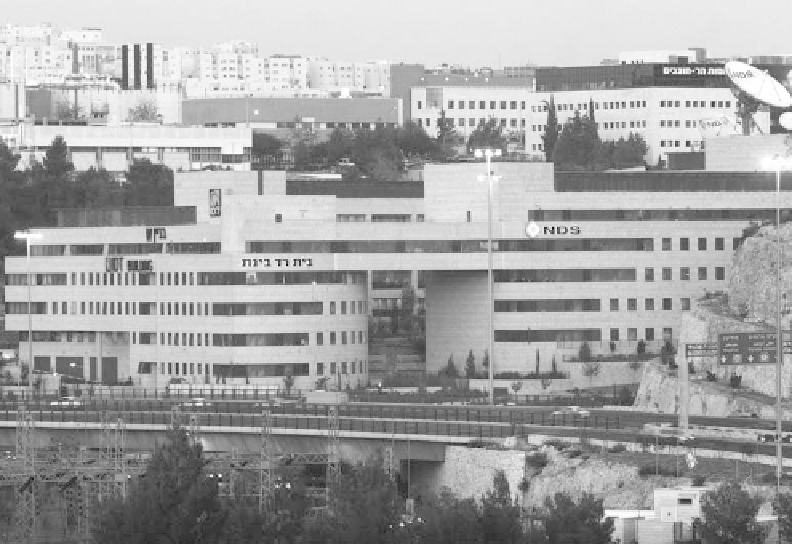Travel Reference
In-Depth Information
A general view of the high-tech industrial area of Jerusalem. (Orel Cohen / Flash90.)
duced a startling number of inventions in a wide range of fi elds, especially given the country's
small population. Israel has also been quick to adapt to changing conditions, to open new
markets, and to enter new fi elds.
The Weizmann Institute of Science and the Robert H. Smith Faculty of Agriculture, Food
and Environment at the Hebrew University, both located in Rehovot, and the Technion -Israel
Institute of Technology in Haifa have played a particularly important role in the education of
people capable of such adaptability and creativity. The results include everything from longer-
lived fl owers to fi sh farming to the ICQ system that made Internet chatting possible to life-
saving medical procedures.
Israeli culture is another product of synthesis and improvisation. Out of such materials as
the long history of the Jews, the Yishuv, the borrowings and adaptations of immigrant Jews
from several dozen countries, the experience of Israel, and the impact of several contemporary
cultures (including those of Western and Eastern Europe and the Middle East), an original
corpus of music, dance, literature, and art emerged.
A MODERN COUNTRY
In Israel, as in all countries, social classes exist. But in a society so young and now so based
on individualism and often anti-traditionalism, social classes have no political signifi cance;
people do not strongly identify with them, nor are classes as deeply differentiated as in other
countries.

